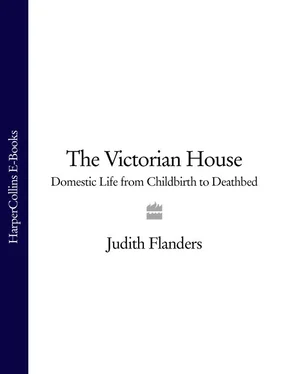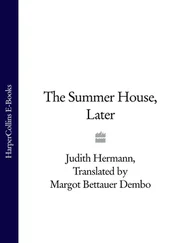The Daisy Chain was enormously successful, and considered a very sound moral tale, helpful to young girls. Ethel, a bookish, hoydenish girl, is gradually brought to understand that the pinnacle of womanhood is in the renunciation of the use of her intelligence. At first she studies with her brother. He attends school, and passes on to her the gist of his lessons, which she is permitted to indulge herself with after she has performed such essentials as mending her frocks. However, by being clever and untidy and having no aptitude for household work, she will. Miss Winter fears, grow up ‘odd, eccentric and blue’. Soon her family decides that the time has come for her to stop studying Latin and Greek. Her brother, who has been her champion, agrees: ‘I assure you, Ethel, it is really time for you to stop, or you would get into a regular learned lady, and be good for nothing.’ So Ethel gives up all her aspirations, and crowns the sacrifice (which she now thinks of as a triumph) by finding pleasure instead in stitching up her brother’s Newdigate Prize submission in Balliol colours. 81
Girls who were not prepared to give up all personal aspirations, as Ethel had done so cheerfully, had other reasons to desist from serious study. Education for adolescent girls was a serious health risk, they were warned. The educator Elizabeth Missing Sewell’s Principles of Education, Drawn from Nature and Revelation was concerned with the upper classes, but she pointed out universal truths:
[A boy] has been riding, and boating, and playing cricket, and both body and mind have been roused to energy; and so, when he comes to study, he has a sense of power, which acts mentally as well as physically, and enables him to grasp difficulties, and master them. The girl, on the contrary, has been guarded from over fatigue, subject to restrictions with regard to cold and heat, and hours of study, seldom trusted away from home, allowed only a small share of responsibility; – not willingly, with any wish to thwart her inclinations – but simply because, if she is not thus guarded, if she is allowed to run the risks, which, to the boy, are a matter of indifference, she will probably develop some disease, which, if not fatal, will, at any rate, be an injury to her for life. 82
Dr James Burnett, in Delicate, Backward, Puny and Stunted Children (1895), assured his readers that a girl would, at puberty, always fall behind her brothers in academic achievement: her ‘disordered pelvic life’ guaranteed that she ‘must necessarily be in ill-health more or less [ever after] … Not one exception to this have I ever seen.’ * 83
Despite this consensus, many popular novelists deplored the lack of female education: Dickens, Thackeray and also Charlotte Bronte and George Eliot painted vivid pictures of the resulting misery of ignorance, for both sexes. Jeannette Marshall’s father, a surgeon and Professor of Anatomy at the Royal Academy, encouraged his daughters to attend lectures at University College. He even hoped they would sit exams. They refused to do the latter, and attended few lectures. It was not surprising. From the schoolroom onwards, girls were never tested, never matched against others, never socialized in any form. Jeannette and her sister Ada managed one term before the requirements of their social life supervened: they had made no friends with any of the other women attending the college; from Jeannette’s diary, it is not clear that they ever learned any of their names. For Jeannette, education was a matter of passing the time – she studied algebra in late adolescence as ‘a cure for boredom’ – or, more importantly, of prestige. She had piano lessons with the well-known pianist (and founder of the English Wagner Society) Edward Dannreuther, and noted of some new acquaintances, ‘I went up 100 per cent in their estimation when they heard Mr. Dannreuther was my [music] master. A good card to play!’ 84 Jeannette enjoyed her music, and intermittently worked hard at it, while she never became one of those women condemned by the author of Maternal Counsels to a Daughter. ‘Who would wish a wife or a daughter, moving in private society, to have attained such excellence in music as involves a life’s devotion to it?’ 85
Ignorance was, in many ways, a desirable state. Knowledge was burdensome, and could overwhelm those unable to bear its weight. Mrs Gaskell worried about sending the toddler Marianne to school, where ‘she may meet with children who may teach her the meaning of things of which at present we desire to keep her ignorant’. 86 This need to protect girls from knowledge did not grow less when they became adult. Half a century after Mrs Gaskell expressed her anxiety, Gissing depicted his characters arguing about the same subject. Monica, a woman who had been forced to marry for economic security, disagreed with her new husband on whether or not a mutual friend was ‘nice’ for her to know. He responded:
‘… In your ignorance of the world’ –
‘Which you think very proper in a woman,’ she interrupted caustically.
‘Yes, I do! That kind of knowledge is harmful to a woman.’
‘Then, please, how is she to judge her acquaintances?’
‘A married woman must accept her husband’s opinion, at all events about men.’ He plunged on into the ancient quagmire. ‘A man may know with impunity what is injurious if it enters a woman’s mind.’ 87
Knowledge of a fact could corrupt not because of the fact itself, but because of the gender of the mind it resided in. This was not to say that girls and women were expected to know nothing. It was just that their accomplishments and abilities were important in reactive ways: as Mrs Ellis said earlier, girls needed to know enough about science so that they could look intelligent while men talked. Equally, girls should be able to play the piano, not for the pleasure derived from music, but because it was useful. Mrs Panton thought that girls’ natural reason for learning to play the piano was ‘because they can be useful either to accompany songs and glees or to play dance-music’, 88 not love of music. Nearly half a century later the function of a daughter had not altered: ‘it is the daughter’s privilege … to act the part of sympathiser and interested listener in the home circle. No other claim is greater.’ 89
Girls were only to respond to others, not have thoughts of their own. It took Molly Hughes some time before her place as a reactive rather than an active family member became clear to her:
the family pooled what gossip they had got from school … discussing future plans and telling the latest jokes … I, as the youngest, seldom got a word in and was often snubbed when I did. Thus, after venturing, ‘I did well in French today’, I had the chilling reminder from [her brother] Charles, ‘Self-praise is no recommendation.’ If I related a joke, ‘We’ve heard that before’ would come as a chorus. Once when I confided to Dym [another brother] that we had begun America, he called out, ‘I say, boys, at Molly’s school they’ve just discovered America.’
That kidnap victims take on the ideology of their captors in order to survive is a well-known psychological effect, called the Stockholm Syndrome. Molly Hughes was a prime example. She used the word ‘chilling’ for her brother’s crushing retort, but she little appeared to recognize quite how chilling the scene related above was. She ended, ‘In short, I was wisely neglected’, and confided that ‘I tried to carry out the wishes of these my household gods by being as ordinary and as little conspicuous as I could.’ 90
Felix and Henrietta Carbury, the brother and sister in Trollope’s The Way We Live Now , showed similar characteristics, albeit heightened for fictional purposes. Felix Carbury was a wastrel who had run through his inheritance and was now battening on his mother, who could ill afford to support herself and her daughter. Henrietta, however,
Читать дальше












